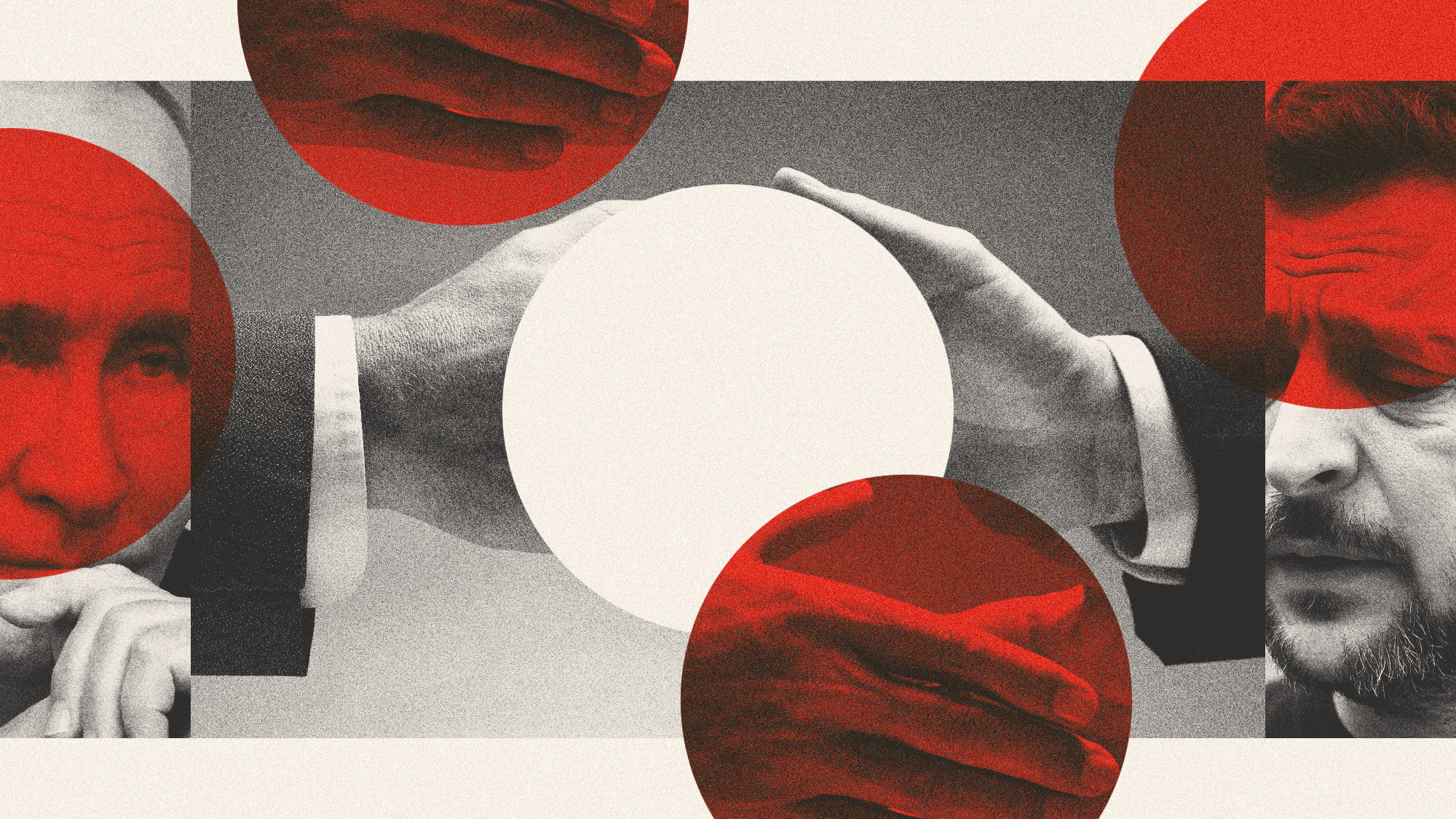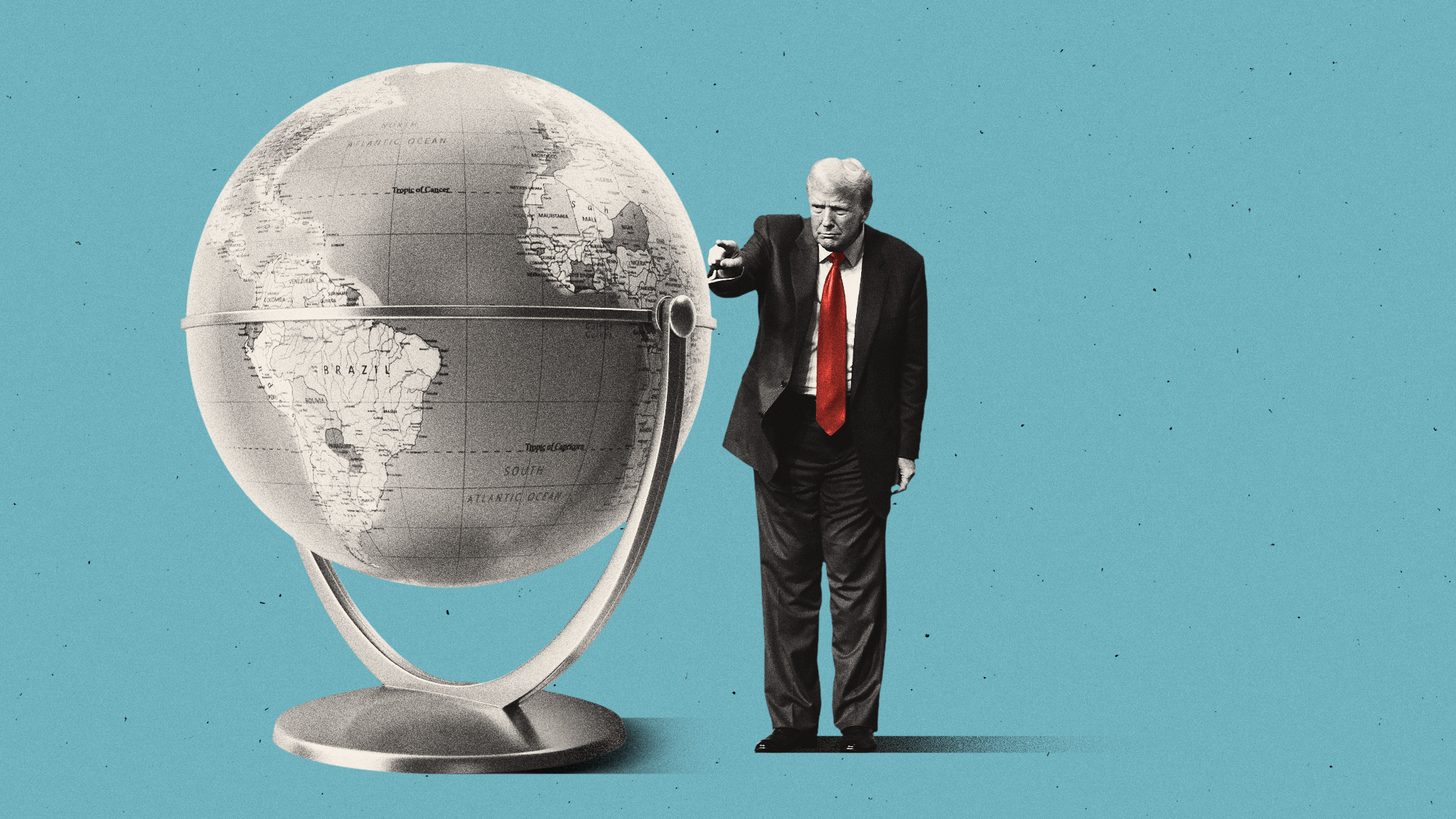Ukraine-Russia: is peace deal possible after Easter truce?
'Decisive week' will tell if Putin's surprise move was cynical PR stunt or genuine step towards ending war

A free daily email with the biggest news stories of the day – and the best features from TheWeek.com
You are now subscribed
Your newsletter sign-up was successful
Russia has "always looked positively on any peace initiatives" with Ukraine and "we hope that representatives of the Kyiv regime will feel the same way", Vladimir Putin told state TV yesterday, less than 24 hours after his sudden and surprise "Easter truce" ended with both sides accusing each other of multiple violations.
The "sceptical view" is that the 30-hour cessation was "less about pushing for peace" and "more to do with maintaining good relations with the Trump White House" as it grows "impatient with the lack of progress on Ukraine", said BBC Russia editor Steve Rosenberg.
"But there is also a more optimistic view" that while it was a "surprise" it "did not come out of nowhere" and was the result of "intense international diplomacy to try to end the fighting".
The Week
Escape your echo chamber. Get the facts behind the news, plus analysis from multiple perspectives.

Sign up for The Week's Free Newsletters
From our morning news briefing to a weekly Good News Newsletter, get the best of The Week delivered directly to your inbox.
From our morning news briefing to a weekly Good News Newsletter, get the best of The Week delivered directly to your inbox.
What did the commentators say?
US Secretary of State Marco Rubio's threat to walk away from the negotiating table last week "appeared to trigger Putin's weekend offer" said The i Paper's political editor Hugo Gye, "but hopes for a lasting ceasefire between the warring nations were quickly dampened after both sides accused each other of violating the short-lived agreement".
Instead, the Russia president's "hopelessly short-lived" truce appears "aimed directly" at Donald Trump and at "shifting blame for his disastrous peacemaking efforts in the Ukraine war", said CNN.
"For Moscow, it seems, this was never going to be the beginning of the end of the war" but rather a "cynical public relations stunt" amid growing criticism that the Kremlin "had become a foot-dragging obstacle to peace".
Volodymyr Fesenko, chairman of the Penta Center for Applied Political Studies in Kyiv, told DW that Putin's "urgent, unilateral ceasefire was intended to set a trap for Ukraine".
A free daily email with the biggest news stories of the day – and the best features from TheWeek.com
"In exchange for accommodating Trump's wishes – even if not fully – Putin could have also achieved some of his own goals", said the German news outlet.
Among these, Fesenko points to the weakening of Western unity, reducing Russia's dependence on China, and returning to the exclusive club of influential world leaders.
What next?
In what could be a "decisive week", said the Kyiv Independent, Ukraine is set to continue talks with US and European countries in London on Wednesday, with the "primary task" of negotiations "to push for an unconditional ceasefire", said Zelensky.
Kyiv is "under pressure" to respond to "a series of far-reaching Trump administration ideas for how to end the war in Ukraine" including "potential US recognition of Russia’s 2014 annexation of Crimea and excluding Kyiv from joining Nato", the Wall Street Journal reported.
If there is a "convergence among the American, European and Ukrainian positions, the proposals could be floated to Moscow".
But Putin has so far shown little willingness to compromise, especially now he "feels he's negotiating from a position of strength", said Al Jazeera.
His aim is to "use the Trump administration's self-professed 'peace-making' ambitions to his advantage". Having launched a massive conscription drive, Putin's strategy is to "drag out ceasefire negotiations until US military aid runs out and the Russian army is able to advance far enough into Ukrainian territory to force Kyiv into capitulation".
-
 The Olympic timekeepers keeping the Games on track
The Olympic timekeepers keeping the Games on trackUnder the Radar Swiss watchmaking giant Omega has been at the finish line of every Olympic Games for nearly 100 years
-
 Will increasing tensions with Iran boil over into war?
Will increasing tensions with Iran boil over into war?Today’s Big Question President Donald Trump has recently been threatening the country
-
 Corruption: The spy sheikh and the president
Corruption: The spy sheikh and the presidentFeature Trump is at the center of another scandal
-
 Munich Security Conference: a showdown between Europe and Trump?
Munich Security Conference: a showdown between Europe and Trump?Today’s Big Question Report suggests European leaders believe they can no longer rely on the US for military support – but decoupling is easier said than done
-
 What is ‘Arctic Sentry’ and will it deter Russia and China?
What is ‘Arctic Sentry’ and will it deter Russia and China?Today’s Big Question Nato considers joint operation and intelligence sharing in Arctic region, in face of Trump’s threats to seize Greenland for ‘protection’
-
 New START: the final US-Russia nuclear treaty about to expire
New START: the final US-Russia nuclear treaty about to expireThe Explainer The last agreement between Washington and Moscow expires within weeks
-
 What would a UK deployment to Ukraine look like?
What would a UK deployment to Ukraine look like?Today's Big Question Security agreement commits British and French forces in event of ceasefire
-
 Would Europe defend Greenland from US aggression?
Would Europe defend Greenland from US aggression?Today’s Big Question ‘Mildness’ of EU pushback against Trump provocation ‘illustrates the bind Europe finds itself in’
-
 Greenland, Colombia, Cuba: where is Donald Trump eyeing up next?
Greenland, Colombia, Cuba: where is Donald Trump eyeing up next?Today's Big Question Ousting Venezuela’s leader could embolden the US administration to exert its dominance elsewhere
-
 Did Trump just end the US-Europe alliance?
Did Trump just end the US-Europe alliance?Today's Big Question New US national security policy drops ‘grenade’ on Europe and should serve as ‘the mother of all wake-up calls’
-
 Is conscription the answer to Europe’s security woes?
Is conscription the answer to Europe’s security woes?Today's Big Question How best to boost troop numbers to deal with Russian threat is ‘prompting fierce and soul-searching debates’